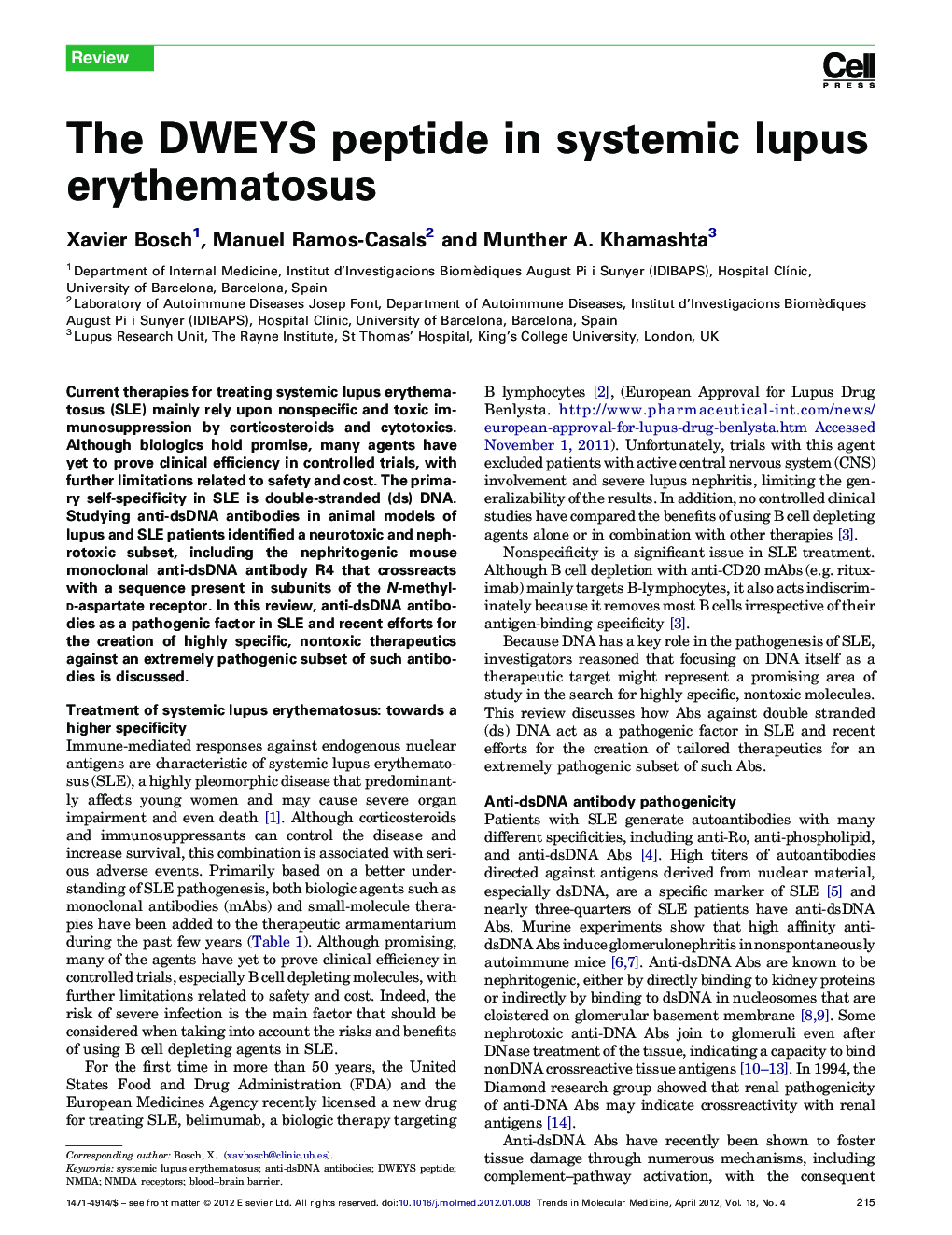| کد مقاله | کد نشریه | سال انتشار | مقاله انگلیسی | نسخه تمام متن |
|---|---|---|---|---|
| 2838831 | 1165056 | 2012 | 9 صفحه PDF | دانلود رایگان |

Current therapies for treating systemic lupus erythematosus (SLE) mainly rely upon nonspecific and toxic immunosuppression by corticosteroids and cytotoxics. Although biologics hold promise, many agents have yet to prove clinical efficiency in controlled trials, with further limitations related to safety and cost. The primary self-specificity in SLE is double-stranded (ds) DNA. Studying anti-dsDNA antibodies in animal models of lupus and SLE patients identified a neurotoxic and nephrotoxic subset, including the nephritogenic mouse monoclonal anti-dsDNA antibody R4 that crossreacts with a sequence present in subunits of the N-methyl-d-aspartate receptor. In this review, anti-dsDNA antibodies as a pathogenic factor in SLE and recent efforts for the creation of highly specific, nontoxic therapeutics against an extremely pathogenic subset of such antibodies is discussed.
Journal: - Volume 18, Issue 4, April 2012, Pages 215–223